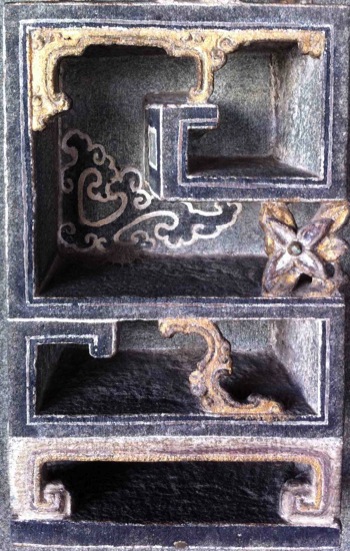|
||||||||||
|
FEATURESWalking with XianyiGeremie R. BarméThe following essay was written to be read at the commemorative gathering held in honour of Yang Xianyi in London on 20 November 2010. Of a morning Xianyi and I would often go wandering out of the Foreign Languages Press compound at Baiwan Zhuang and stroll up the road at Ganjia Kou. New policies had allowed small shops to appear and Xianyi's favourite morning haunt was a little place that sold crudely made curios and pot plants. It didn't survive in the initial commercial wave for long, but on those frequent walks he would invariably pick up a few things, without haggling—perhaps a whistle in the shape of a bird (you know, the kind that has a hole under its tail feathers so you could blow a discordant squawk out of its mouth) or a frog, or maybe a miniature cactus. He'd take them home and proudly show them to Gladys over breakfast. Her invariable gruff dismissal only confirmed Xianyi's clever purchase. That night, or the following day, as a guest welcomed for an afternoon chat or an evening of drinking and gossip settled in, Xianyi would sooner or later be drawn back to the morning buy. He'd motion to the visitor—often of the female persuasion; he'd first describe the unremarkable provenance of the curio and then press them to take it. On cue Gladys would chide the 'old man', as she so often called him, smile that smile of hers and take another drag on a cigarette.  At the time of those first morning strolls I was in my early twenties. I'd been introduced to Xianyi and Gladys by Pat Wilson (Bai Xia) only a few years earlier, just as the Cultural Revolution came to an end. I'd spent some years as a student in Shanghai and Shenyang, and was now a fledgling translator living between Hong Kong and Beijing, or Peking, as we called it then. Xianyi and Gladys welcomed me as there houseguest, and I lived with them during my Beijing trips from the late 1970s until the early 1990s. During those early years it was Xianyi's mixture of world-weariness and curiosity—as well as the booze and cigarettes—that were a powerful lure. He would joke that in the past he had been denounced for 'leading the young astray'. In the post-Cultural Revolution years, having lived under the regime of Mao Thought Propaganda Teams and Foreign Affairs cadres, I was yearning for just his kind of leadership. From the time I met them, Xianyi and Gladys had a profound impact on the way I lived in China, and the way I would come to see the world. Through Xianyi and Gladys I encountered a realm of what the poet Ai Qing called 'living fossils' (huo huashi 活化石). With their encouragement I began writing in Chinese and translating more broadly. Over the years I too introduced the Yangs to some of my own acquaintances. There was Ling Zi (Ye Xiangzhen), the film director, know for being Ye Jianying's daughter and a former 'United Action' Red Guard leader. And there was the non-conformist journalist Dai Qing, as well. And then there was Liu Xiaobo to whom I introduced Xianyi and Gladys in 1987. Some of these friends enjoyed an immediate sympathy with the Yangs, others were treated with benign hospitality. Today, it is so hard to be in Beijing without Xianyi, or Gladys. Those of us—and there are so many of us—who were invited into their world enjoyed the smoke-filled, alcohol-fuelled embrace of their lives. We also came to appreciate with them a China that promised greater generosity, broader possibilities and a more profound human decency. I miss Xianyi deeply and I know that my present life would be unimaginable without him and Gladys. I know too that China would also be a very foreign country. Gramercy Park, New York 20 November 2010 |